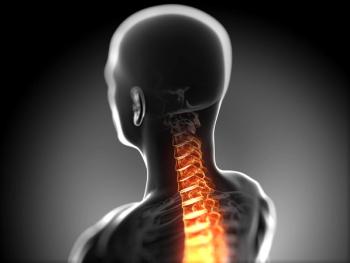
Oncology NEWS International
- Oncology NEWS International Vol 15 No 7
- Volume 15
- Issue 7
Two Cancer Bills Introduced in the US House of Representatives
This new department summarizes current congressional activity relevant to the delivery of cancer care. Two bills recently introduced in the House of Representatives are designed to improve the quality of care for cancer patients on the Medicare program.
This new department summarizes current congressional activity relevant to the delivery of cancer care. Two bills recently introduced in the House of Representatives are designed to improve the quality of care for cancer patients on the Medicare program.
Comprehensive Cancer Care Improvement Act of 2006
Reps. Lois Capps (D-CA) and Tom Davis (R-VA) introduced HR 5465, "to amend title XVIII of the Social Security Act to provide for coverage of comprehensive cancer care planning under the Medicare Program and to improve the care furnished to individuals diagnosed with cancer by establishing a Medicare hospice care demonstration program and grants programs for cancer palliative care and symptom management programs, provider education, and related research."
Of primary interest to oncologists is that HR 5465 would establish a new Medicare service for the development of:
•A treatment plan at the beginning of primary therapy and communication of the plan to the patient
•A cancer care summary and follow-up care plan at the end of primary therapy and communication of it to the patient.
The legislation, supported by the National Coalition for Cancer Survivorship (NCCS), other national patient advocacy groups, and many US cancer centers, also includes provisions to improve symptom management and palliative care for patients undergoing cancer treatment.
Medicare Early Detection of Cancer Promotion Act of 2006
HR 5437, introduced by Rep. Clay Shaw (R-FL), would eliminate coinsurance payments for mammograms and colorectal screenings for Medicare beneficiaries. Currently, Medicare provides coverage for breast, cervical, colon and prostate cancer screening tests, for which the beneficiaries must provide a 20% co-payment.
The bill would amend title XVIII of the Social Security Act to extend for 6 months the eligibility period for the "Welcome to Medicare" physical examination and to eliminate coinsurance for screening mammography and colorectal cancer screening tests in order to promote the early detection of cancer."
The legislation, supported by the American Cancer Society (ACS), also would extend the availability of the "Welcome to Medicare" physical for new beneficiaries from 6 months to 1 year for the next 5 years.
Articles in this issue
over 19 years ago
High-Quality Screening Colonoscopy Priority for GI Docsover 19 years ago
Genentech Seeks Expanded Use of Avastin in Breast Cancerover 19 years ago
Denosumab Suppresses Bone Resorption in Breast Ca Metsover 19 years ago
FDA Approves Priority Review of Merck's Zolinza (Vorinostat)over 19 years ago
FDA Approves Revlimid for Myeloma Rxover 19 years ago
Real-Time RT Planning, Delivery in the Bronxover 19 years ago
Phase III Trial of Enzastaurin for NHL Patients Initiatedover 19 years ago
Racial Disparities in Prostate Ca RecurrenceNewsletter
Stay up to date on recent advances in the multidisciplinary approach to cancer.





































